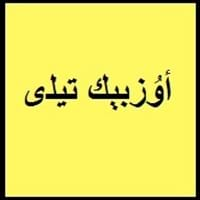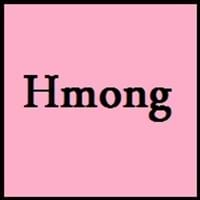Uzbek vs Hmong
Countries
Turkey, Uzbekistan
China, Laos, Thailand, United States of America, Vietnam
National Language
Afganistan, China, Kazakhstan, Kyrgyzstan, Russia, Tajikistan, Turkmenistan, Uzbekistan
China, Gambia, Laos, Thailand, United States of America, Vietnam
Second Language
Not spoken in any of the countries
Not spoken in any of the countries, Republic of Brazil
Speaking Continents
Middle East
Asia
Minority Language
Not spoken in any of the countries
Not spoken in any of the countries
Regulated By
Not Available
Not Available
Interesting Facts
- Uzbek is officially written in the Latin script, but many people still use Cyrillic script.
- In Uzbek language, there are many loanwords from Russian, Arabic and Persian.
- Hmong language may not be so popular at first sight, but it has rich history and various dialects are spoken by millions of people.
- Hmong language came from western part of China.
Similar To
Kazakh and Uyghur Languages
Not Available
Derived From
Not Available
Not Available
Alphabets in
Uzbek-Alphabets.jpg#200
Hmong-Alphabets.jpg#200
Scripts
Arabic, Cyrillic, Latin
Latin
Writing Direction
Not Available
Left-To-Right, Horizontal
Hello
Salom
Nyob zoo (Nyaw zhong)
Thank You
Rakhmat
Ua tsaug (Oua jow)
How Are You?
Qalay siz?
Koj nyob li cas (Gaw nyaw lee cha)
Good Night
Hayirli tun
zoo hmo
Good Evening
Hayirli kech
zoo yav tsaus ntuj
Good Afternoon
Hayirli kun
zoo tav su
Good Morning
Hayirli tong
zoo thaum sawv ntxov
Sorry
Kechiring!
Thov txim (Thaw zhee)
I Love You
Sizni sevaman
Kuv hlub koj
Excuse Me
Iltimos! Menga qarang
zam txim rau kuv
Dialect 1
Tashkent
Hmong Njua
Where They Speak
Not Available
Laos
How Many People Speak
Not Available
Dialect 2
Afghan
Hmong Daw
Where They Speak
Not Available
China
How Many People Speak
Not Available
Dialect 3
Ferghana
Hmong Do
Where They Speak
Not Available
Vietnam
Native Name
أۇزبېك ﺗﻴﻠی o'zbek tili ўзбек тили (o‘zbek tili)
Hmong
Alternative Names
Annamese, Ching, Gin, Jing, Kinh, Viet
Mong
French Name
ouszbek
hmong
German Name
Usbekisch
Miao-Sprachen
Pronunciation
Not Available
Not Available
Ethnicity
Uzbek
Hmong people
Origin
9th–12th centuries AD
19
Language Family
Turkic Family
Hmong–Mien Family
Subgroup
Turkic
Not Available
Branch
Southestern(Chagatai)
Not Available
Early Forms
Chagatay
No early forms
Standard Forms
Uzbek
Hmong
Language Position
Not Available
Signed Forms
Not Available
Not Available
Scope
Macrolanguage
Macrolanguage
ISO 639 1
uz
No data available
ISO 639 2/T
uzb
Not Available
ISO 639 2/B
uzb
Not Available
ISO 639 6
Not Available
Not Available
Glottocode
uzbe1247
firs1234
Linguasphere
No data available
No data available
Language Type
Living
Living
Language Linguistic Typology
Not Available
Not Available
Language Morphological Typology
Not Available
Not Available
Uzbek and Hmong Language History
Comparison of Uzbek vs Hmong language history gives us differences between origin of Uzbek and Hmong language. History of Uzbek language states that this language originated in 9th–12th centuries AD whereas history of Hmong language states that this language originated in 19. Family of the language also forms a part of history of that language. More on language families of these languages can be found out on Uzbek and Hmong Language History.
Uzbek and Hmong Greetings
People around the world use different languages to interact with each other. Even if we cannot communicate fluently in any language, it will always be beneficial to know about some of the common greetings or phrases from that language. This is where Uzbek and Hmong greetings helps you to understand basic phrases in Uzbek and Hmong language. Uzbek word for "Hello" is Salom or Hmong word for "Thank You" is Ua tsaug (Oua jow). Find more of such common Uzbek Greetings and Hmong Greetings. These greetings will help you to be more confident when conversing with natives that speak these languages.
Uzbek vs Hmong Difficulty
The Uzbek vs Hmong difficulty level basically depends on the number of Uzbek Alphabets and Hmong Alphabets. Also the number of vowels and consonants in the language plays an important role in deciding the difficulty level of that language. The important points to be considered when we compare Uzbek and Hmong are the origin, speaking countries, language family, different greetings, speaking population of these languages. Want to know in Uzbek and Hmong, which language is harder to learn? Time required to learn Uzbek is 44 weeks while to learn Hmong time required is 44 weeks.





